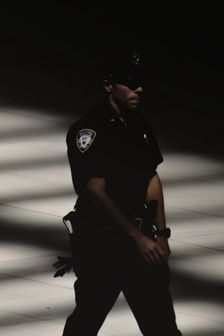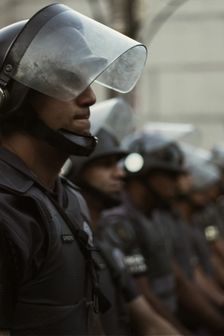The People in Power: The Introduction
A network of elected and appointed officials influence the laws that either end or enable brutality.
Meet your local decision makers and understand their pressure points.

Introduction
Can you name your mayor? How about your district attorney? Or members of your city council?
If you’re drawing a blank, you’re not alone.
only 27% vote in local elections
As individuals, we have the most power to fight brutality at the local level
If you’re in the U.S., local officials shape your daily experience more than the president. They make or break your relationship with your city. Their responsibilities include everything from providing safe roads and determining school districts, to ensuring trash pickup runs smoothly.
We have the most power to fight back and change policies that govern police operations at the local level.
There are over 18,000 individual police departments nationwide. This means there are different sets of rules and guidelines that run police departments across the country. As confusing as that is—and with some very real downsides— this ultimately works out in our favor.
Source: Vera Institute of JusticeFederal and state laws certainly have influence but ultimately local officials have the most control over what happens in our backyard.
In this lesson, we’ll discuss how the mayor, city council, district attorneys, and police chiefs have the power to create change. We’ll also give a quick primer on sheriffs, city managers/administrators, and city attorneys.
Finally, we’ll explore instances where corruption can creep in and explain how you can hold your local officials accountable if they’re caught slipping on the job.
Just keep one thing in mind: although this lesson is about the people in power, know that ultimately we are the ones with the power.
Their job as public officials is to serve us. Not the other way around.



